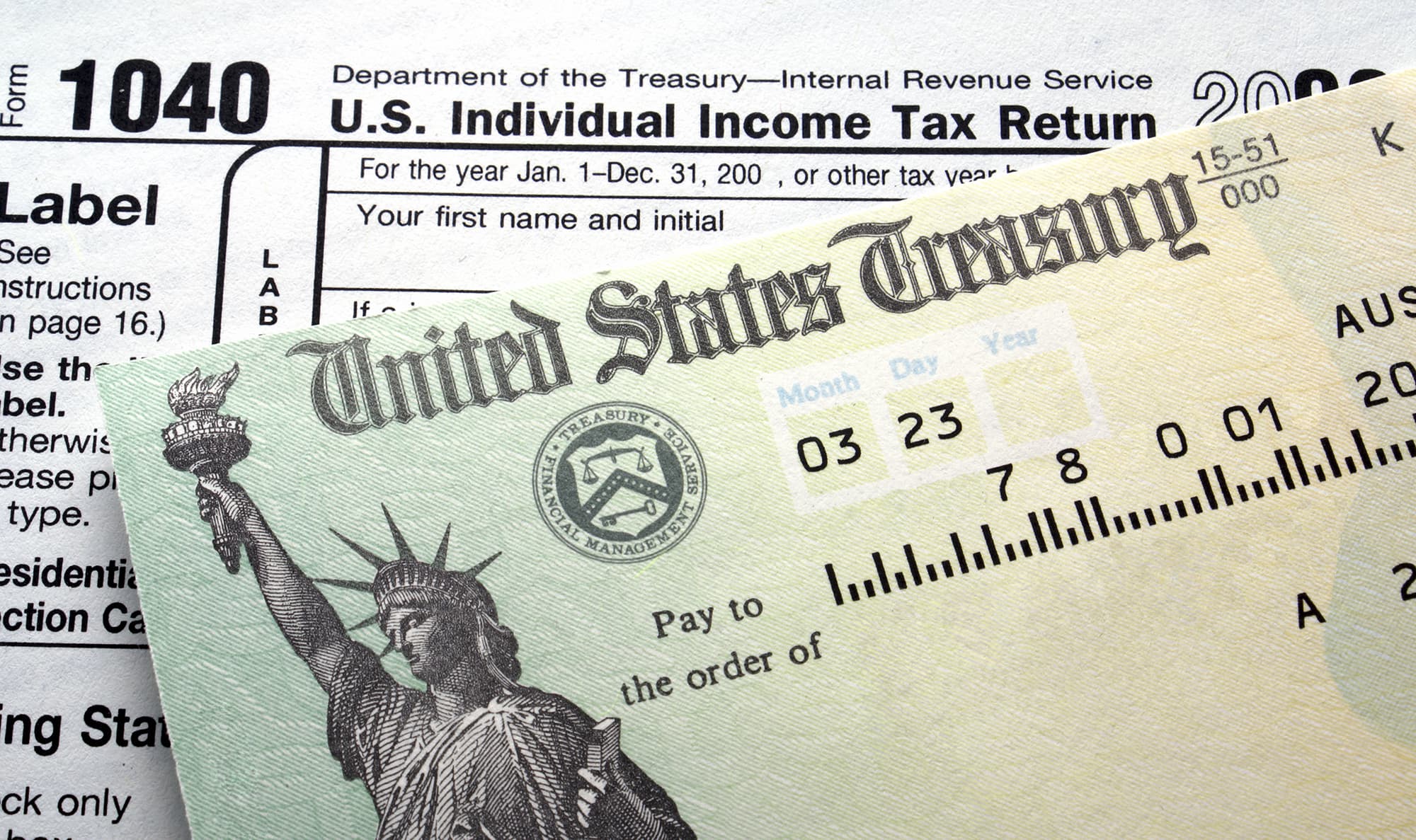Many Americans seem to be addicted to income tax refunds, even though financial planners often advise having less tax withheld from your pay throughout the year as the better way to manage your cash flow. Nearly two-thirds of taxpayers — more than 111 million Americans — received a refund from the Internal Revenue Service last year. The average tax refund windfall was $2,869.
Some taxpayers admit they know they could pay less in taxes throughout the year, if they changed the amount of tax that is withheld from their pay. But nearly two-thirds (63%) of those surveyed in a new report from Kiplinger’s Personal Finance Magazine and Barclays U.S. Consumer Bank said they would rather get a refund. Only 37% said they would prefer a bigger paycheck.
Many people want a refund because they’re not good savers, said Lisa Greene-Lewis, a certified public accountant and TurboTax tax expert. “If they had an extra $100 a month (in their paycheck), they would probably just spend it. Getting a lump sum helps you pay down debt or do something like contribute to an emergency fund, or invest,” she said.
While more than one-quarter of those in the Kiplinger’s and Barclays’ survey said they saved their tax refund and 7% invested it, 17% used the money to pay off credit card bills and 11% spent it on everyday items. About 16% did a little of both, spending a portion and saving the rest.
More from Invest in You:
If these entrepreneurs could get a do-over, here’s what they would do differently
Master these key concepts to become a successful entrepreneur
Josh Brown says rushing into the market is like eating junk food
If you’re due a tax refund this year, here are four smart ways you can put the money to good use, according to financial experts.
1. Send the refund check to more than one account Consider splitting your refund into two or three accounts. The IRS can direct deposit your money to as many as three different U.S. financial institutions. Have part of your refund sent to a checking account for immediate needs, a savings account to build up your emergency fund, and an investment account for long-term or retirement savings.
2. Put the money into a regular or Roth IRA. When it comes to your long term savings, this can be a great move. You can save up to $6,000 or $7,000 if you’re 50 or older in 2019 and 2020. If you put the money in an IRA by April 15, it can count for the 2019 tax year. Have more money later? It can go toward your 2020 IRA contribution.
3. Don’t forget to keep some cash on hand. While the average interest rate on a bank savings account is only around a quarter of one percent, you may be able to receive a rate of 1.7% or above at an online bank. That may not sound like a huge difference, but it can add up when your money is just sitting there for a rainy day. “It makes sense to think about forgoing that big refund and placing your money in a high interest savings account where deposits can earn around 1.7% to 2% annually,” Andrew Harris, head of banking, Barclays U.S. Consumer Bank, said in a statement. “Over time, it’s the smartest play.”
4. Pay off high-interest debt. This may be your most immediate financial goal. The average rate on a credit card is over 17%. Getting rid of the balance in one lump sum can bring of peace of mind, and also help motivate you to pay off other debts. If a car or student loan is weighing on you, just be certain there are no prepayment penalties for paying it off early.
If you have a big bill due, keep in mind the amount of time it takes to receive a refund. The IRS says it issues most refunds in less than 21 days, although some require additional time.
SIGN UP: Money 101 is an 8-week learning course to financial freedom, delivered weekly to your inbox.
CHECK OUT: How to keep the most ‘powerful force in the universe’ from working against youvia Grow with Acorns+CNBC.
Disclosure: NBCUniversal and Comcast Ventures are investors in Acorns.
